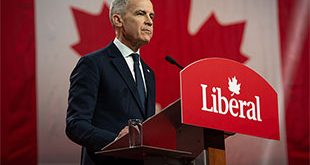The border trouble began in June when Chinese soldiers started to extend a road through the Doklam territory — known as “Donglang” in Chinese.
India deployed troops to stop the construction project, prompting Beijing to accuse it of trespassing on Chinese soil.
The plateau is strategically significant as it gives China access to the so-called “chicken’s neck” — a thin strip of land connecting India’s northeastern states with the rest of the country.
Another incident elsewhere earlier this month, in which Indian and Chinese soldiers fought with rocks and sticks at a high-altitude lake on the disputed border between the two countries, further inflamed tensions.
Dhruva Jaishankar, a foreign policy fellow with Brookings India, said India had achieved its objective by refusing to budge and getting China to step back from its contentious road project.
“The Chinese side is going to focus on the fact that the Indian troops have withdrawn. (But) ultimately the issue is whether this road gets built or not, and it appears that it won’t be the case,” Jaishankar told AFP.
India has historically been closely allied to Bhutan, but in recent years China has sought to increase its own engagement with the tiny mountainous kingdom.
That has fed into a broader competition for regional influence between the two Asian powers.
Monday’s announcement comes days before India’s Prime Minister Narendra Modi is expected to travel to China for a summit of BRICS countries — India, China, Russia, Brazil and South Africa.
 The Independent Uganda: You get the Truth we Pay the Price
The Independent Uganda: You get the Truth we Pay the Price


